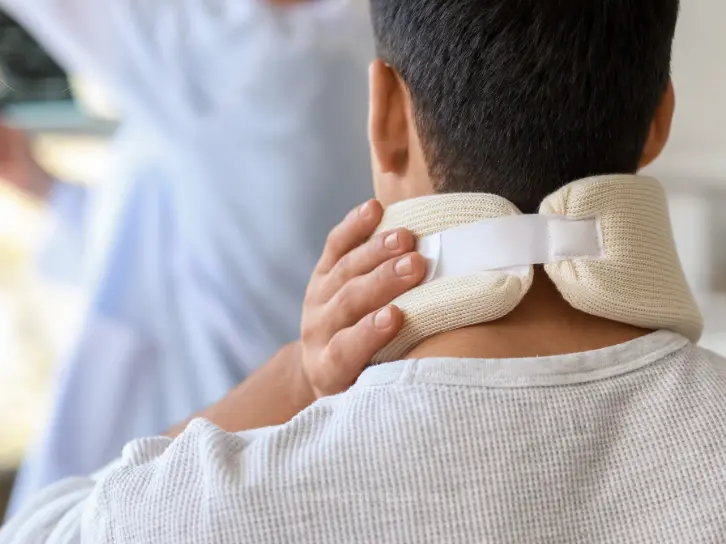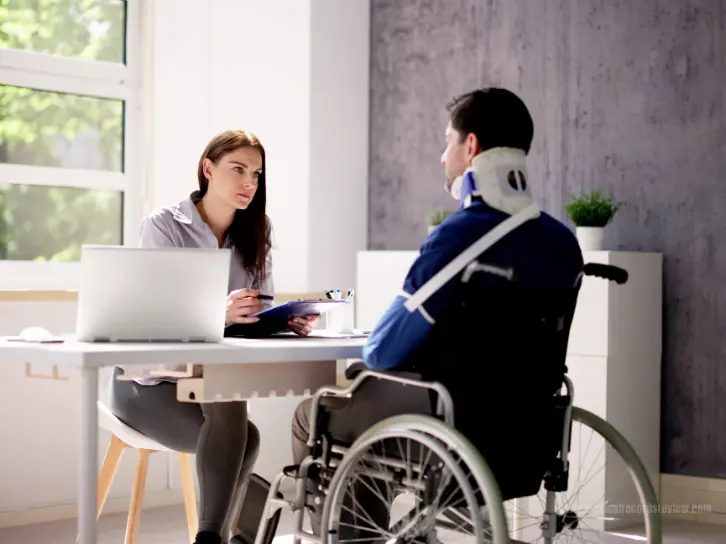When it comes to personal injury law, timing is everything. Both lawyers and clients need to understand how the timeline of a case can impact its outcome. This article will break down each step of a personal injury case and highlight the crucial role of expert medical records review services.
First, let’s look at the typical timeline of a personal injury case in America. It usually starts with the injury itself. After that, the injured party seeks medical treatment. This is a key moment. The medical records created during this time are vital for building a strong case.
Next, the injured person may decide to hire a lawyer. This is where things can get tricky. The lawyer needs to gather all relevant information, including medical records, accident reports, and witness statements. This process can take time, but it’s essential for a solid case.
Once the lawyer has all the necessary documents, they will file a claim. This is where expert medical records review services come into play. These services help lawyers analyze medical records to find important details that can support the case. For example, they can identify pre-existing conditions or highlight the extent of injuries. This information can make a big difference in negotiations or court.
After filing the claim, the negotiation phase begins. This can be lengthy, as both sides may go back and forth. If a fair settlement isn’t reached, the case may go to trial. Here, the timeline can stretch even further. Trials can take months or even years, depending on the complexity of the case.
Looking ahead to 2024, we may see changes in how personal injury cases are handled. New laws or regulations could impact timelines. For instance, there might be a push for faster resolutions or more streamlined processes. This is where expert medical records review services will continue to be invaluable. They can help lawyers adapt to any changes and ensure they have the best information to support their clients.
The Incident and Immediate Aftermath
A. The Moment of Injury
The personal injury timeline starts when the incident has already occurred. It can be a vehicular collision, a tumble in a store, or an instance of being a victim of nursing negligence, this incident propels the entire justice process forward. It’s crucial to document as much information as possible immediately after the incident occurs.
B. Seeking Medical Attention
After an injury occurs, it is necessary to go to the hospital as soon as possible. It is vital not only for the victim’s health and well being but also serves the purpose of making an official documentation of the injuries. These initial medical records will play a significant role in the case moving forward.
C. Reporting the Incident
Depending on the nature of the incident, it may need to be reported to relevant authorities. For example, car accidents should be reported to the police, while workplace injuries must be reported to employers. These reports serve as official documentation of the incident.
Initial Legal Steps
A. Consultation with an Attorney
After dealing with medical emergencies, often the injured person will want to receive professional help from a lawyer. In the first meeting, the lawyer hears all the facts and the case history and evaluates the chances for winning the case, suggesting what will or can happen regarding the litigation.
B. Investigation and Evidence Gathering
When an attorney is taken on by a party, the work designating an injury attorney’s investigation needs to begin immediately. This entails:
1. Witness statements collection
2. Photographs collection
3. Police reports and other incident reports collection
4. Collecting available video footage
C. Preliminary Medical Records Review
At this stage, the preliminary examination of the medical documents available is carried out; however, this applies more to specialized medical record reviews. These experts help attorneys understand the full extent of the injuries and their potential long-term implications.
Building the Case
A. Comprehensive Medical Records Collection
A remarkable aspect of constructing a strong injury case is collecting the individual’s medical history and treatment data. This entire procedure can be quite hectic and time consuming as it at times requires the input of several healthcare providers and facilities.
B. In-Depth Medical Records Analysis
Secondary features may be the collection of records which will now be analyzed by the medical records review specialist in detail. In this process, it is possible to:
1. Relate all the injuries to the accident
2. Examine the extent of these injuries and their chronic effects
3. Consider whether the treatments were reasonable and required
4. Clarify the existence of pre-existing conditions and their credibility in the case
C. Expert Medical Records Review Services: A Game-Changer for Attorneys
In 2024, the context of personal injury law remains dynamic, with the emergence of medical records review services becoming very significant. These services which are more and more in demand offer several advantages to attorneys:
1. Efficiency: Professional reviewers can quickly sift through voluminous medical records, saving attorney’s valuable time.
2. Expertise: With backgrounds in both healthcare and legal documentation, these experts can interpret complex medical jargon and its legal implications.
3. Accuracy: Detailed reviews minimize the risk of overlooking crucial information that could make or break a case.
4. Strategic Insights: By identifying key medical facts, these services help attorneys build stronger, more compelling cases.
Recent statistics from American Bar Association has also demonstrated that litigation support law firms that outsource medical records review services have a 35% higher wins of the case and take 40% less time to prepare the case for litigation
Pre-Litigation Negotiations
A. Demand Letter Preparation
In anticipation of a claim, the attorneys write a demand letter detailing the case after considering all but the medical evidence. The case heading written l, case injuries and injuries, and the amount being claimed are all included in this letter.
B. Initial Settlement Discussions
Many personal injury cases are resolved through negotiations before a lawsuit is filed. The strength of the medical evidence, as analyzed by expert review services, often plays a crucial role in these discussions.
C. Mediation and Alternative Dispute Resolution
When the initial negotiations do not achieve their goal, the parties may attempt to settle the dispute through mediation or other techniques of alternative dispute resolution. Once more, the quality and scope of the medical records assessment can affect how these steps are handled.
Filing the Lawsuit
A. Preparing the Complaint
Once all negotiation attempts fail and all terms have been met the attorney is obligated to initiate a lawsuit by filing a complaint. As always, it summarizes the legal grounds upon which the claim is based and substantiates them by the medical documents which have been obtained.
B. Serving the Defendant
Once the complaint is filed, it must be formally served to the defendant, officially notifying them of the lawsuit.
C. The Defendant’s Response
The formal response made by a defendant to the complaint is given within thirty days and the reply is normally a yes or a no.
The Discovery Phase
A. Interrogatories and Depositions
During discovery, both parties exchange information through written interrogatories and oral depositions. Medical records and their expert analysis often form the backbone of these exchanges.
B. Expert Witness Testimonies
Medical professionals involved in the case may be asked to express any opinions and make conclusions based on the medical records presented to him or her. Such testimonies can change the course of the case positively or negatively.
C. Ongoing Medical Records Review
As the case develops, it might be appropriate to have updates from the medical records review especially if the plaintiff is still under treatment. Legal services focusing on document review include medical record abstraction and regular updates for litigation support where medical documents are often needed.
Pre-Trial Procedures
A. Motions and Hearings
Various legal motions may be filed during this phase, often drawing on the medical evidence to support arguments.
B. Final Settlement Negotiations
Once all the evidence has been marshaled and the comprehensive analysis of medical records completed, the parties usually settle the matter one more time.
C. Trial Preparation
If a settlement isn’t achieved, both parties make preparations for the trial. This includes gathering all the documents, such as the medical records, expert opinions and any other relevant information required in an exciting story, which they present in court.
The Trial
A. Jury Selection
Where appropriate, the picking out of an unbiased jury commences the trial.
B. Opening Statements
Attorneys for each party deliver the opening statements of the court explaining the case that they intend to establish.
C. Presentation of Evidence
In the course of the trial, the medical records and their expert evaluation are very vital in establishing the degree of the damages and their toll on the plaintiff’s conduct.
D. Closing Arguments and Verdict
At the end of presentation of all exhibits attorney addresses the jury with what is called a closing argument, after this the jurors or the judge in a bench trial is given the responsibility of deciding on the outcome.
Post-Trial Procedures
A. Appeals Process
If either party is dissatisfied with the verdict, they may choose to appeal the decision.
B. Enforcement of Judgment
If the plaintiff wins, the process of collecting the awarded damages begins.
The Role of Medical Records Review Services Throughout the Process
Attorneys are extensively assisted in all phases of a personal injury case by expert medical records review services. Such services include those that assist attorneys in the following areas:
1. Comprehensive Analysis: Making sure every important medical detail is accounted for.
2. Timeline Creation: Constructing an accurate timeline of medical events of relative injury
3. Causation Linkage: Fitting the incidence or the occurrence of injury to the article.
4. Summaries by Experts: Summarizing facts from complex medical records for legal matters in short.
5. Providing Medical Writing: Continuous medical analysis is also provided as and when further medical records are made available.
Case Studies
Case Study 1: The Impact of Thorough Medical Records Review in a Multi-Vehicle Accident
Overview: A 45-year-old man was involved in a multi-vehicle pileup on a major highway, sustaining multiple injuries including whiplash, a fractured arm, and a traumatic brain injury.
Challenges: The case involved multiple defendants, complex medical treatments, and disputes over the extent of the plaintiff’s injuries, particularly the long-term effects of the brain injury.
Solutions: The plaintiff’s attorney engaged a specialized medical records review service to analyze over 1,000 pages of medical documentation from various healthcare providers. The review team identified crucial evidence of cognitive decline post-accident that had been overlooked in initial assessments.
Case Study 2: Uncovering Pre-existing Conditions in a Slip and Fall Case
Overview: A 60-year-old woman suffered a hip fracture after a slip and fall incident at a local supermarket.
Challenges: The defense argued that the plaintiff’s osteoporosis, not the fall itself, was primarily responsible for the severity of her injury.
Solutions: Through meticulous medical records review, the plaintiff’s legal team was able to demonstrate that while the woman did have pre-existing osteoporosis, her condition was well-managed prior to the accident. The review revealed that the fall significantly exacerbated her condition, leading to complications that wouldn’t have occurred otherwise.
Conclusion
Navigating the timeline of a personal injury case requires expertise, diligence, and a deep understanding of both legal and medical aspects. As we’ve seen, the role of expert medical records review services is paramount in building and supporting a strong case at every stage of the process.
By understanding this comprehensive timeline and the crucial role of medical evidence, attorneys can approach personal injury cases with greater confidence and clarity, ensuring that justice is served and rightful compensation is secured.



